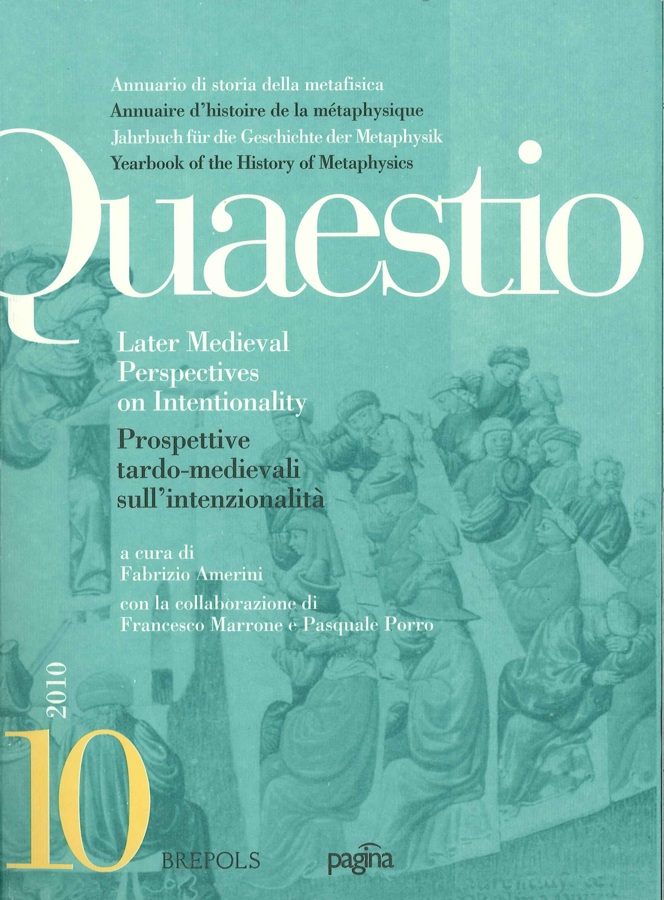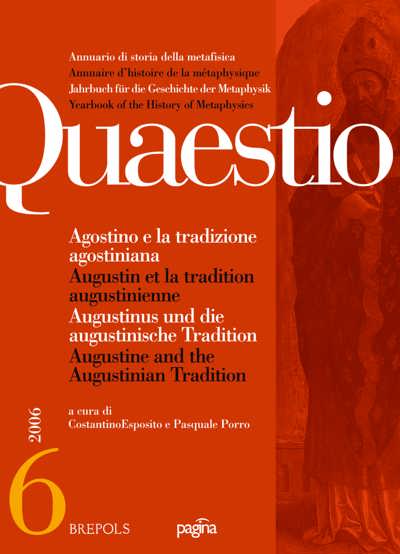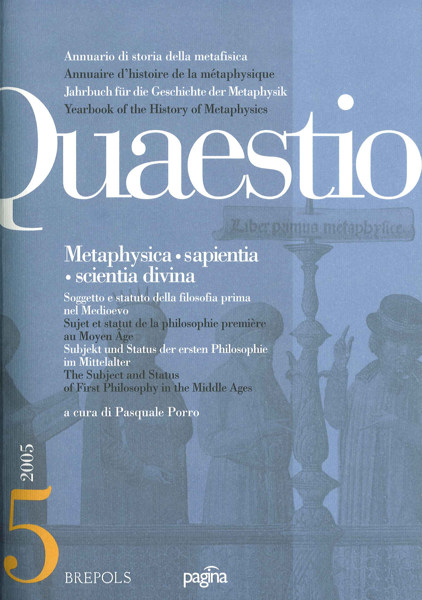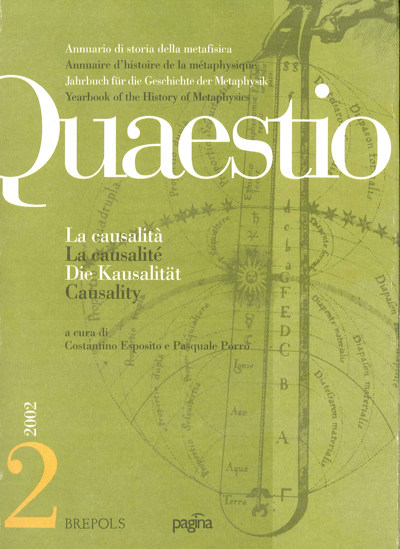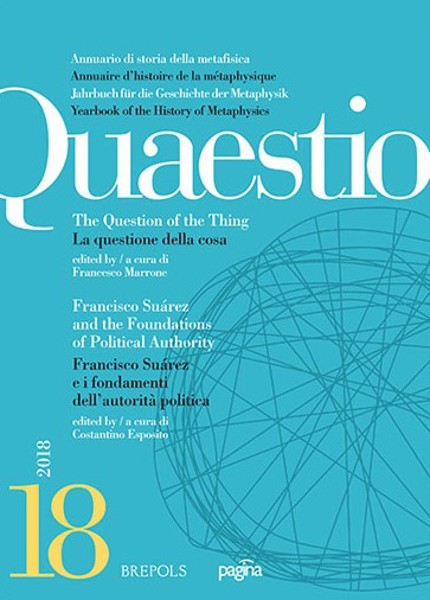
QUAESTIO 10 (2010)
Later Medieval Perspectives on Intentionality
- Pages: 408 p.
- Size:170 x 240 mm
- Language(s):English, Italian
- Publication Year:2011
- € 80,00 EXCL. VAT RETAIL PRICE
- ISBN: 978-2-503-53634-7
- Paperback
- Available
- E-journal
- Available
F. Amerini (Parma), Introduction - P. King (Toronto), Medieval Intentionality and Pseudo-Intentionality - M. Pickavé (Toronto), On the Intentionality of the Emotions (and of Other Appetitive Acts) - D. Black (Toronto), Intentionality in Medieval Arabic Philosophy - G. Galluzzo (Scuola Normale Superiore, Pisa), Thomas Aquinas on Mental Being - G. Klima (Fordham, New York), Indifference vs. Universality of Mental Representation in Aquinas, Scotus, Ockham, and Buridan - B. Goehring (Notre Dame, Indiana), “… intelligit se intelligere rem intellectam”. Henry of Ghent on Thought and Reflexivity - G. Pini (Fordham, New York), Scotus on Intentionality and Causality - R. Cross (Notre Dame, Indiana), Duns Scotus on the Semantic Content of Cognitive Acts and Species - C. Rode (Bonn), Peter of John Olivi on Representation and Self-Representation - A. Robert (Tours), Intentionality and the Categories in Medieval Latin Averroism - J. Dijs (Leiden), Hervaeus Natalis on the Proper Subject of Logic - D. Piché (Montreal), Gerard of Bologna and Hervaeus Natalis on the Intuition of Non-Existents - R. Friedman (Leuven) / C. Schabel (Cyprus), Peter Auriol and Landulphus Caracciolus on First and Second Intentions - C. Panaccio (Montreal), Intuition and Causality: Ockham’s Externalism Revisited - C. Normore (UCLA), Reduced Intentionality and Primitive Intentionality: Ockham’s Legacy - L. Cesalli (Genève), Objects and Relations in Correlational Theories of Intentionality. The Case of Franciscus de Mayronis - W. Duba (Fribourg), Neither First, nor Second, nor... Francis of Marchia’s ‘intentiones neutrae’ in His Commentary on the Sentences - A. Conti (L’Aquila), First and Second Intentions in Walter Burley and John Wycliff - H. Lagerlund (London), The Changing Face of Aristotelian Empiricism in the Fourteenth Century.

